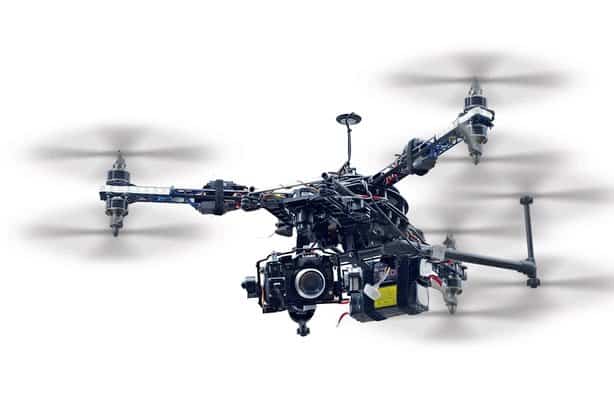If you are flying a drone for commercial purposes such as infrastructure inspection or real estate marketing, there is no question that you should get drone insurance. You will not be able to work with clients without at having, at a minimum, liability and hull insurance.
But what if you are just flying for fun? Do you still need $500 a year insurance coverage?
Unlike commercial drone flying, the need for insurance for hobby drones is not so straightforward. It depends on several factors. Consider the following three questions when deciding whether to get coverage for your drone.
1. How valuable is your drone?

The importance of insurance, whether for drones, homes or cars, is to protect valuable assets. If you bought your drone for a $100 or less, I wouldn’t consider it really valuable. It is not worth the cost and hassle of insuring it. I would also think twice about insuring anything worth less than $500.
If on the other hand you have a DJI Phantom 4 Pro or a Yuneec’s Typhoon H, both of which cost over $1,000, insurance is a good idea. That’s even if you are using the drone for fun.
Insurance will cover the high costs of replacing or repairing your drone in the event of an accident.
Generally speaking, most entry-level hobby drones don’t really need any kind of insurance. You are not flying it in a high-risk area and if it hits a wall or tree, replacing parts is not that expensive. You will also not feel that much of a pinch buying a new one of it is completely destroyed or stolen.
But pricier hobby drones costing more than $700 may need some sort of coverage. Trying to cover the repair or replacement costs yourself can be a drain on your wallet.
2. What do you use your drone for and where do you fly it?
You need to also consider the level of risk your drone is exposed to. If you are just flying in your backyard, there is little risk of smashing the drone into a tree.
But if you spend more time flying in the outdoors, taking scenic pictures and videos or just having some FPV fun, then drone insurance is something to consider.
But keep in mind the first consideration above. A $200 drone doesn’t need insurance regardless of where you are flying. The value of your drone is the most important factor to consider above all others.
Generally, determine how much risk you are most comfortable with. If you feel that you are skilled enough to fly a $700 drone in a park without crashing it to smithereens, you can opt to go insurance-free.
But if you feel the risk is too much, perhaps because of the flying environment or your skill level, get your drone insured.
3. Does the drone manufacturer provide any coverage?
Some manufacturers provide a warranty or servicing plan that covers drone repair or replacement in case of damage.
The best known one is DJI Care Refresh. This service covers certain DJI drones for 12 months after purchase. They will repair your drone or replace it at a much reduced cost than what you would pay without the coverage.
If you use GoPro cameras with your drone, GoPro also have a servicing guarantee called GoPro Care. It covers your camera for two years. You get damage repair and full camera replacement at reduced costs.
So before you go out and sign up with a drone insurer, check whether your own manufacturer can cover you. If they do, it will usually be enough to cover any risk you will encounter when flying your drone as a hobby.
Types of Drone Insurance
If you have decided that you need drone insurance, there are several types you can get. The most common is liability insurance. It covers damage to third party property and accidental injuries to other people.
It is especially important if you fly in an area with many buildings and with a lot of people (You should never fly directly above high-traffic areas).
For expensive drones, you can also get hull insurance. This covers your drone although it may not cover onboard equipment such as cameras. If you have an expensive camera or sensors attached to your drone, consider getting Payload insurance.
Hull and payload insurance cover accidental damage to your drone and any equipment onboard. The maximum total amount covered is usually $500,000 for a non-commercial drone.
Note that there is no federal or state law requiring mandatory insurance coverage for drones. So it’s up to you to decide whether you are comfortable enough flying your drone without insurance.

